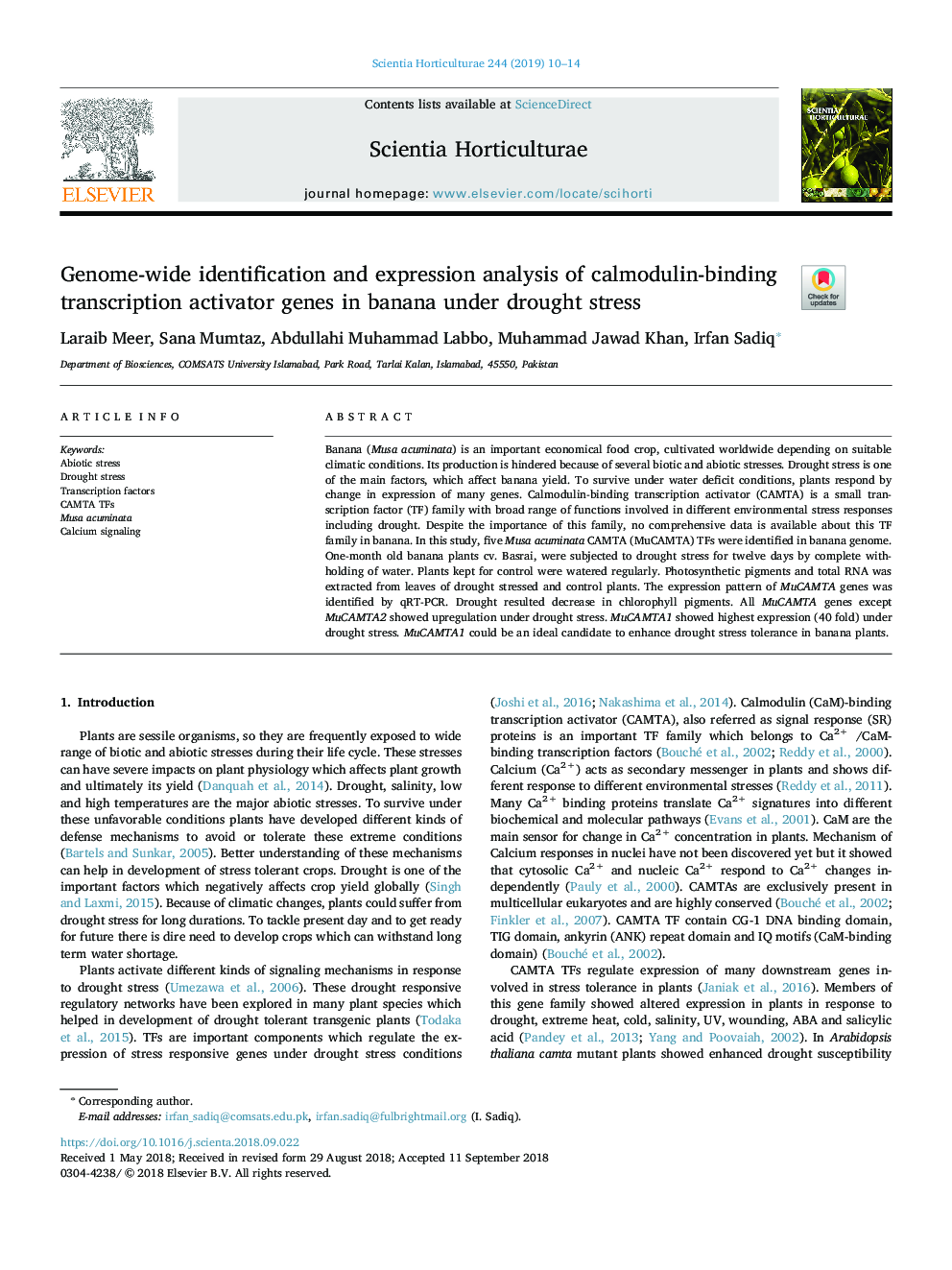| Article ID | Journal | Published Year | Pages | File Type |
|---|---|---|---|---|
| 10223953 | Scientia Horticulturae | 2019 | 5 Pages |
Abstract
Banana (Musa acuminata) is an important economical food crop, cultivated worldwide depending on suitable climatic conditions. Its production is hindered because of several biotic and abiotic stresses. Drought stress is one of the main factors, which affect banana yield. To survive under water deficit conditions, plants respond by change in expression of many genes. Calmodulin-binding transcription activator (CAMTA) is a small transcription factor (TF) family with broad range of functions involved in different environmental stress responses including drought. Despite the importance of this family, no comprehensive data is available about this TF family in banana. In this study, five Musa acuminata CAMTA (MuCAMTA) TFs were identified in banana genome. One-month old banana plants cv. Basrai, were subjected to drought stress for twelve days by complete withholding of water. Plants kept for control were watered regularly. Photosynthetic pigments and total RNA was extracted from leaves of drought stressed and control plants. The expression pattern of MuCAMTA genes was identified by qRT-PCR. Drought resulted decrease in chlorophyll pigments. All MuCAMTA genes except MuCAMTA2 showed upregulation under drought stress. MuCAMTA1 showed highest expression (40 fold) under drought stress. MuCAMTA1 could be an ideal candidate to enhance drought stress tolerance in banana plants.
Related Topics
Life Sciences
Agricultural and Biological Sciences
Horticulture
Authors
Laraib Meer, Sana Mumtaz, Abdullahi Muhammad Labbo, Muhammad Jawad Khan, Irfan Sadiq,
